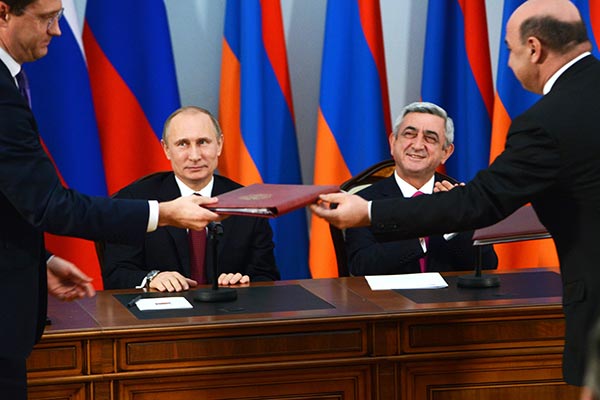There is no doubt that the terrible events that happened on
Friday, November 13th in Paris, France were devastating. The crisis that has enveloped Europe and the
rest of the world surrounding the attacks certainly has changed the course of
how the United States, France, and other states plan to combat ISIS. However, amidst this tragedy lies another
situation that is just waiting to explode.
Enter the sleeper crisis.
It is no secret
that the South Caucasus has always been riddled with historical ethnic tensions
and territory disputes, but what should worry those in national security is the
boiling water that Armenia and Azerbaijan have found themselves in. Internally, the conflict deals with Nagorno-Karabakh,
"an area populated and militarily
controlled by Armenians but located within Azerbaijan." In essence, the Armenians believe that they
have a historical, sovereign right in the region, while Azerbaijan is more
concerned with the infringement of their territorial integrity.
All previous
attempts for negotiations have not resulted in any improvement as the leaders
of both Armenia and Azerbaijan have made it clear that they have no intention
of sitting down to compromise. With
peace efforts frozen, the plot thickens as Moscow puts pressure on both regions
to expand, all the while providing weapons to both sides. Due to the fact that Armenia is a landlocked
country in the South Caucasus, its borders of Turkey, Russia Georgia, Iran, and
the Middle East, this developing crisis should worry the United States. As developments of this crisis become more
complicated, so too will the relationships between the United States and these
larger players. Therefore, "this requires the West pay more policy
level attention to the South Caucasus." This is why peacemaking in this region should
be one of our top priorities, not to take away from our combat of ISIS, but to
instead "reduce the risk that the
disputed territory of Nagorno-Karabakh will erupt into a hot war," plummeting
some of the United States' greatest threats into more complex and untested
tensions---Which we can all agree is the last thing the world needs right now.

No comments:
Post a Comment